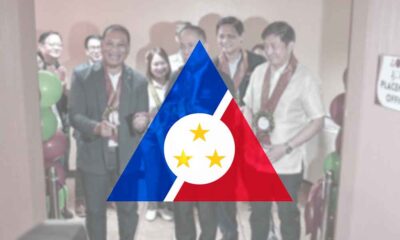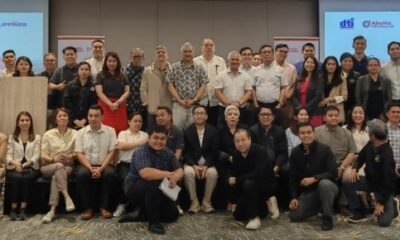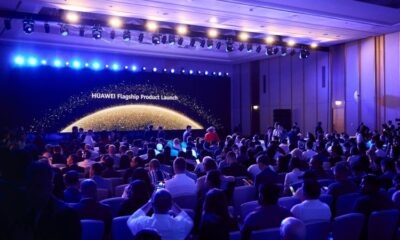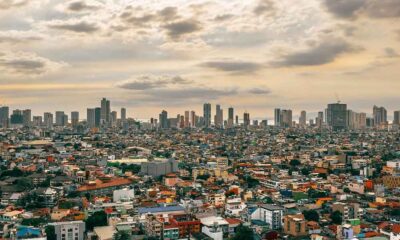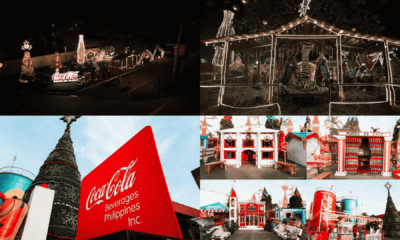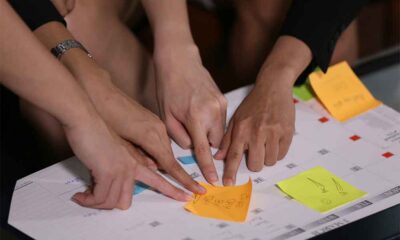News
Build, Build, Build Program Seen as Defining Duterte Legacy
The ambitious ‘Build, Build, Build’ program envisioned to extinguish the Philippines’ reputation as “sick man of Asia” could serve as one of the defining legacies of President Rodrigo R. Duterte, a Forbes report said.
According to an article written by Manila-based columnist Richard Javad Heydarian, the Philippines is experiencing an infrastructure boom never seen since the time of former President Ferdinand Marcos.
“Infrastructure could very well be one of the Filipino president’s defining legacies,” Heydarian said in his article.
Citing a data from Department of Finance (DOF), Heydarian mentioned 75 flagship projects that would help bring down the cost of a product, improve rural incomes, encourage countryside investments, make the movement of goods and people more efficient, and create more jobs.
The big-ticket projects include six airports, nine railways, three bus rapid transits, 32 roads and bridges, and four seaports.
Under the Build, Build, Build that has an estimated budget of USD180 billion (PHP9 trillion) over the next five years, the government will also construct four energy facilities, ten water resource projects or irrigation systems, five flood control facilities, and programs aim to address needs of the urban population.
“If successful, Duterte could once and for all extinguish the Southeast Asian country’s reputation as the ‘sick man of Asia’–and usher in an unprecedented era of inclusive economic development,” Heydarian wrote.
He noted the consistent high economic growth of the Philippines since 2011 when the country rose from “historically mediocre growth pattern” to become one of the fastest growing economies in Asia.
The World Bank forecasted the Philippine economy to grow by 6.7 percent this year and 2019.
Heydarian, however, has observed the country’s shallow growth, leaving high levels of unemployment, poverty, and hunger.
“And this is where the Dutertenomics’ ‘build, build, build’ agenda comes into the picture, hoping to (literally) bridge the gap in economic policies of past administrations. Infrastructure is clearly the country’s Achilles heel,” he said.
He said lack of infrastructure has been a major source of concern for foreign investors as seen by Japan International Cooperation Agency (JICA) study blamed traffic congestion in Manila to poor infrastructure.
According to the 2017 World Economic Forum’s competitiveness report, the Philippines ranked 97th in the world in terms of infrastructure. In a separate report by the United Nations, the Philippines ranked 5th in Southeast Asia in terms of access to physical infrastructure.
For the next five years, the Philippines will be banking on the infrastructure investments from China and Japan and TRAIN (Tax Reform for Acceleration and Inclusion) as source of funds for the ambitious Build, Build, Build program.
Heydarian also noted the observation of many people that even if the Duterte administration fails to achieve half of its massive infrastructure projects, “Duterte could still go down in history as a harbinger of a golden age of infrastructure buildup in the country.”
But while the Dutertenomics continued to gain praises, Duterte himself is living up to his election campaign to fight illegal drugs, crimes and graft, and corruption.
During the oathtaking of Presidential Anti-Corruption Commission (PACC) on Tuesday night in Malacanang, Duterte reiterated his vow to stop corruption.
“But for me, if that is the only legacy that I can really leave behind, I don’t have extraordinary talent. I don’t know how else could I do it in governance. But there is one thing that I promised you during the election and it was very a simple one… This is what I’ve said, I will try to stop corruption,” he told the PACC officials.
Duterte’s strong campaign against corruption was one of the reasons that propelled the Philippines on top of the US News and World Report’s list of “Best Countries to Invest In” for 2018.
The Department of Finance has also attributed the country’s No. 1 ranking to strong anti-corruption drive, improved revenue collections, politically stable government and Build, Build, Build program.
On the other hand, Presidential Spokesperson Harry Roque Jr. recognized the political will that Duterte exhibited to uplift the lives of over 100 million Filipinos.









